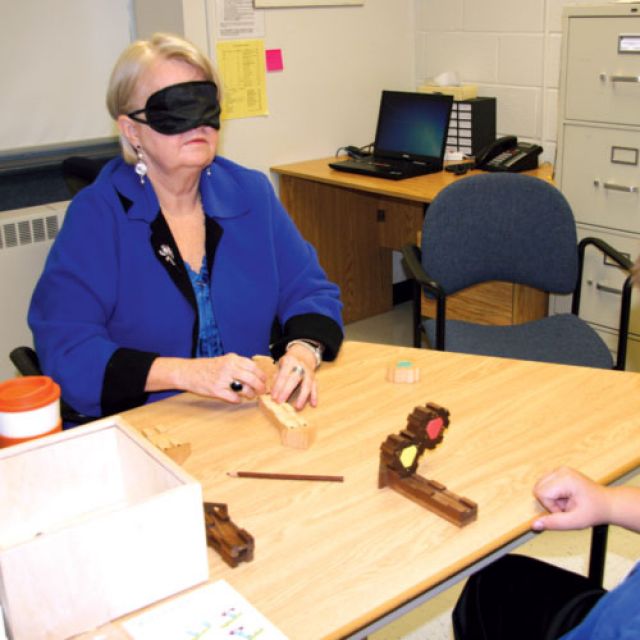The Dufferin-Peel Catholic District School Board is using toys in a pilot project aimed at increasing communication skills between students.
The suburban board to the west of Toronto has partnered with Twenty One Toys to introduce its innovative Connexions puzzle packages into the classroom.
Founded by Montrealer Ilana Ben-Ari, the toy company aims to prepare future employees for the job market by teaching them the importance of creativity, collaboration and innovation when problem solving. The Connexions puzzle challenges two participants to configure 10 different three dimensional shapes into the same pattern without the use of their eyes. The aim is to strengthen communication skills.
“It’s an opportunity to work together with fun or play at the centre (but) really with the focus on deepening our understanding of how we work together,” said Shirley Kendrick, the board’s superintendent of special education and support services.
“From a Catholic perspective one of the things that was intriguing to us was the whole concept of honouring the dignity of all students.”
According to Kendrick, the board’s director of education and associate director responsible for instructional services — John Kostoff and Ralph Borrelli respectively — challenged staff this year to look at 21st century learning for all. This led Kendrick and assistant superintendent Les Storey to Twenty One Toys.
“One of our brilliant and leading academic consultants, Stephen Hurley, introduced the concept to me … and that’s how we met Ilana,” said Kendrick. “The artist and designer looked from an industry perspective and she was given a grant to look at supporting students who were nonsighted and trying to get them to work with their sighted peers.”
Of course communicating this way can be frustrating, said Storey, especially for sighted peopled. But that’s part of the learning process.
“It’s also a chance when we do it in schools for kids to reflect on identifying when they got frustrated (and) what’s making you frustrated,” said Storey. “It’s not just about special ed students. This is a chance to level the playing field for everybody. It gives everyone an equal opportunity to be part of the conversation and discussion.”
Staff are presenting the products to schools and gauging the program’s effectiveness as well as ways of introducing it into the classroom. Those participating in the pilot project include teachers, youth workers, dictional resource workers and support staff.
“We’re very excited to hear the feedback from the field,” said Kendrick. “We’re excited to hear how did people use them and to hear the narrative or the stories that come back to us to say, we started with this and it’s grown into something that perhaps we didn’t expect.”
While details about how exactly these toy packages will be introduced, and used, is still to be worked out, the intention is already clear.
“We think about the application of these toys or other supports as a way of saying … the types of supports that some students need really can be good types of support for all,” said Kendrick. “We all need to learn to see what others are feeling.”

